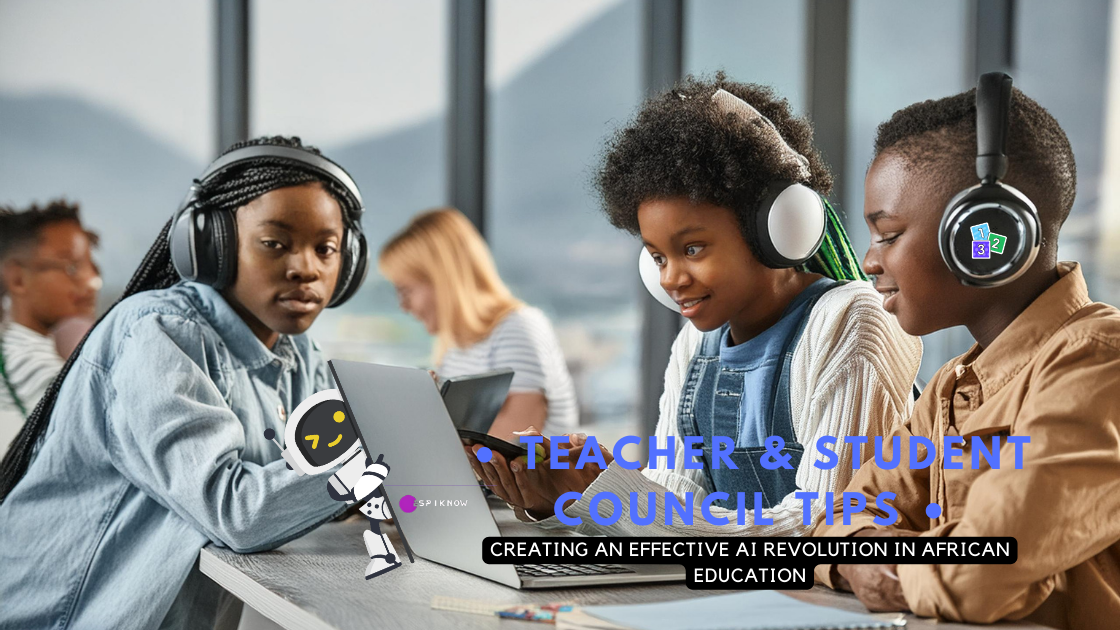
How can AI support teachers and students in Africa?
AI provides tools and insights that enhance teaching and learning experiences.
Current State of Education in Africa
Education in Africa faces several challenges, including lack of resources, overcrowded classrooms, and limited access to quality teachers. Many students do not receive personalized attention, leading to gaps in learning and lower academic achievement. Traditional teaching methods often struggle to meet the diverse needs of students, resulting in a one-size-fits-all approach that may not be effective for all learners.
Role of AI in Improving Learning Outcomes
Artificial Intelligence (AI) has the potential to revolutionize education in Africa by providing personalized learning experiences for students. AI algorithms can analyze each student's learning style, pace, and areas of weakness to create customized lesson plans. This tailored approach can help students improve their understanding of complex concepts and achieve better academic outcomes.
Professional Development for Teachers
AI can also support teachers in developing their skills and improving their teaching methods. Through AI-powered platforms, educators can access professional development courses, resources, and feedback to enhance their classroom practices. This continuous support can help teachers stay updated on the latest educational strategies and techniques, ultimately benefiting their students.
Engaging Students through Technology
AI-powered technology can make learning more engaging and interactive for students. Virtual reality simulations, educational games, and online platforms can captivate students' interests and allow them to explore concepts in a visually stimulating way. By incorporating technology into education, teachers can create dynamic and immersive learning experiences that cater to diverse learning styles.
Integration of AI in Curriculum
Integrating AI into the curriculum can enhance the learning process and make education more relevant to the digital age. By incorporating AI concepts and applications into various subjects, students can develop critical thinking, problem-solving, and technology skills that are essential for success in the 21st century. AI integration can also prepare students for future careers in fields such as data science, robotics, and machine learning.
Addressing the Digital Divide
One of the key challenges in African education is the digital divide, which limits access to technology and online resources for many students. AI can help bridge this gap by providing online learning opportunities, virtual classrooms, and digital tools that can be accessed from anywhere. By ensuring that all students have equal access to educational resources, AI can help level the playing field and reduce disparities in learning outcomes.
Innovation in Education Systems
AI is driving innovation in education systems across Africa, leading to more efficient, effective, and student-centered approaches to teaching and learning. From automated grading systems to intelligent tutoring programs, AI technologies are transforming traditional education models and enabling more personalized, adaptive, and data-driven instruction. This innovation is helping educators tailor their teaching methods to meet the unique needs of each student and maximize their learning potential.
Leveraging Data for Student Success
AI can analyze vast amounts of data to track student progress, identify learning trends, and provide insights that can inform teaching practices. By collecting and analyzing data on student performance, engagement, and behavior, educators can gain valuable information that can help them make informed decisions about instructional strategies, interventions, and support services. This data-driven approach can lead to improved student outcomes and more effective teaching practices.
Supporting Diverse Learning Needs
AI can assist in supporting diverse learning needs by providing personalized interventions, accommodations, and resources for students with disabilities, language barriers, or other challenges. Through adaptive learning technology, AI can adjust the pace, content, and format of instruction to meet the individual needs of each student, creating a more inclusive and accessible learning environment. By catering to diverse learning styles and abilities, AI can help all students reach their full potential and succeed academically.
Global Trends in AI Education
The use of AI in education is a growing trend globally, with schools, universities, and educational institutions adopting AI technologies to enhance teaching and learning. From virtual assistants to intelligent tutoring systems, AI is reshaping the education landscape and opening up new possibilities for personalized and adaptive learning experiences. As AI continues to evolve and innovate, its role in education is expected to expand, offering new opportunities to support teachers, empower students, and transform the future of learning in Africa and beyond.